Each game, the typical footballer travels between 6.3 and 8.7 miles. Add in the fact that you’ll be playing twice a week for nearly nine months of the year, and you’ve got yourself a busy schedule.
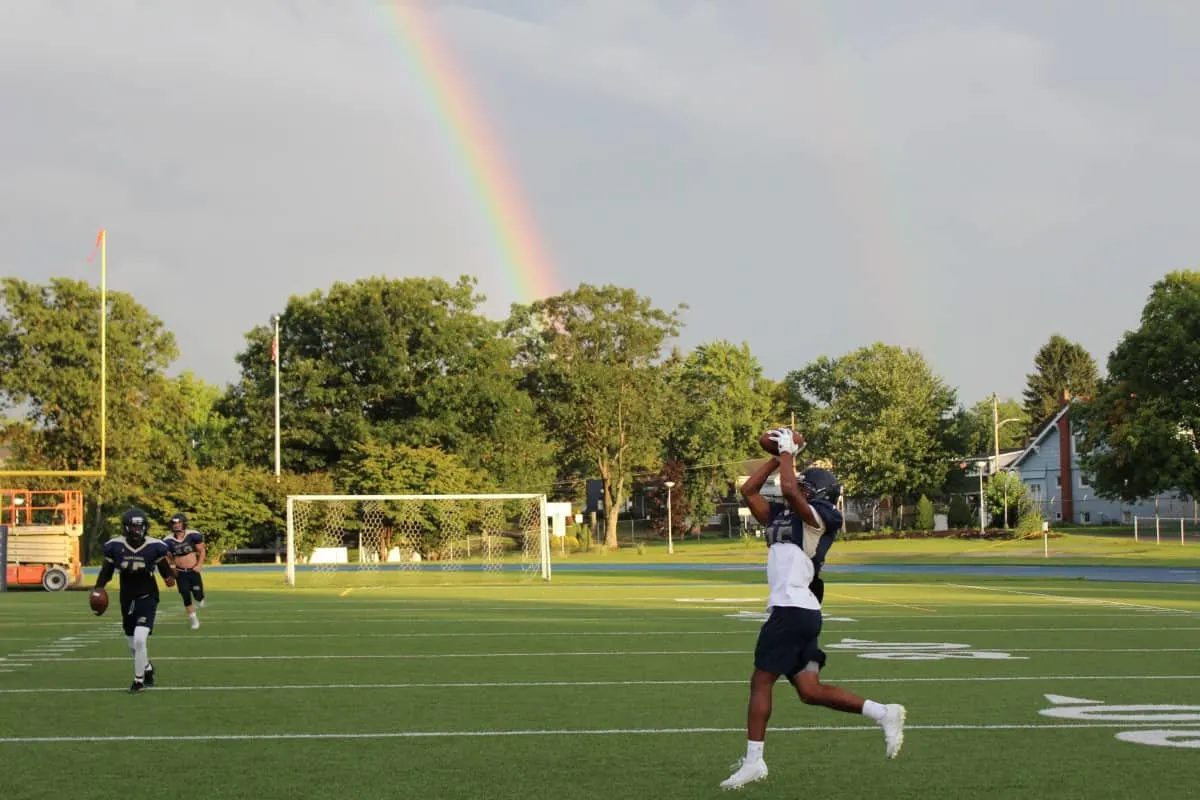
As a result, footballers will utilize whatever reasonable means to stay in shape. Players use whatever they can to go ahead, whether it’s ice baths, advanced training, or detailed food programs. An energy drink is one such thing. It gives players immediate energy to go about their game, as the name implies.
But what are the best energy drinks for football players?
There is a variety of energy drinks to pick from, but personally, I believe the best are G-Fuel, Red Bull, Celsius Energy Drink, Monster Energy, and Bang Energy. Their caffeine content is enough for a Football Player to get their energy fix, but not enough to be a danger to the athlete’s health.
Keep reading to find more about why I find these drinks to be the best for football players.
What’s in Energy Drinks?
Caffeine
We all know that caffeine is a crucial ingredient in energy drinks. Caffeine stimulates the nervous system, causing you to become more alert and focused on the job.

According to the FDA, caffeine use should be limited to 400mg per day. Energy drinks with 50mg-100mg of caffeine per serving, on the other hand, are enough to keep you jolted and boosted enough for long periods of time in the field.
For me, caffeine in excess of 100 mg is usually a bit too much as palpitations and jitteriness are equally unpleasant side effects. As a result, I try to limit my caffeine intake.
However, we are all different, and this amount of caffeine may not affect you the same way it affects me. Limiting your caffeine intake is still necessary to reduce long-term risks.
Sugar
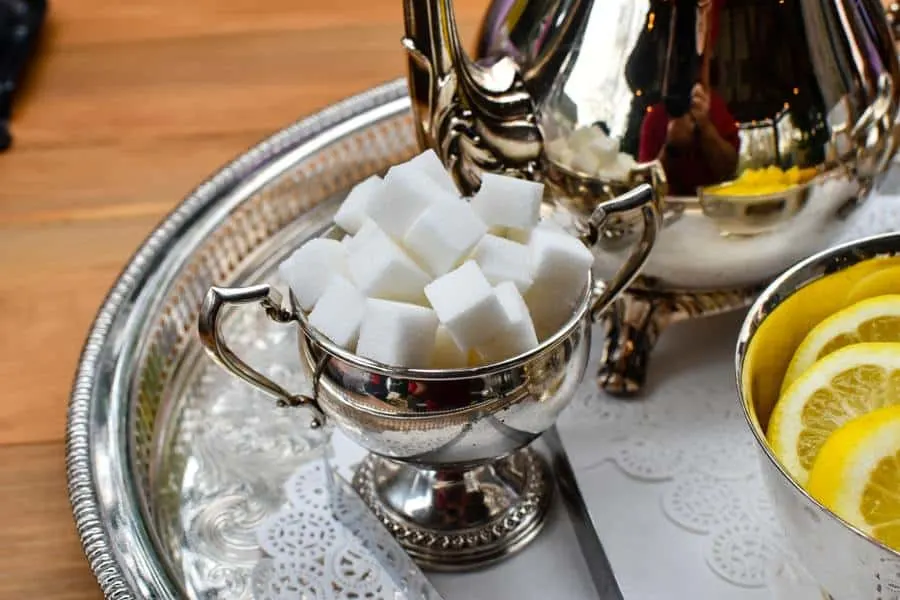
Glucose can be utilized for energy immediately or stored in our bodies for later use. Our bodies require insulin to use or store glucose for energy. Without insulin, glucose stays in the bloodstream, resulting in high blood sugar levels.
You may have reactive hypoglycemia, often known as a sugar crash, a few hours after ingestion. You won’t be able to remain up all night if you have a sugar crash.
However some energy drinks these days are chockfull of sugar and this may lead to some health risks in the long run.
But luckily there are now a variety of choices of sugar-free energy drinks. If you are health conscious and trying to avoid consuming too much sugar, you can always opt-in and try these sugar-free energy drinks that will still provide you the boost you need during your game.
Taurine
Taurine is an amino sulfonic acid, which is a kind of chemical. It is found in the human body naturally and serves a variety of functions. Taurine is abundant in the brain, retina, heart, and platelets, which are blood cells. Meat, fish, and eggs are the finest food sources.
Taurine is used to treat congestive heart failure (CHF) and liver edema (inflammation) (hepatitis). It’s also utilized for sports performance, energy boosts, diabetes, and other ailments, but there’s no solid scientific proof to back up these claims.
Carnitine
Carnitine is an essential component of energy generation. It carries long-chain fatty acids into mitochondria to be oxidized (burned) for energy production. It also transfers the hazardous substances produced by this cellular organelle so that they don’t build up.
Guarana
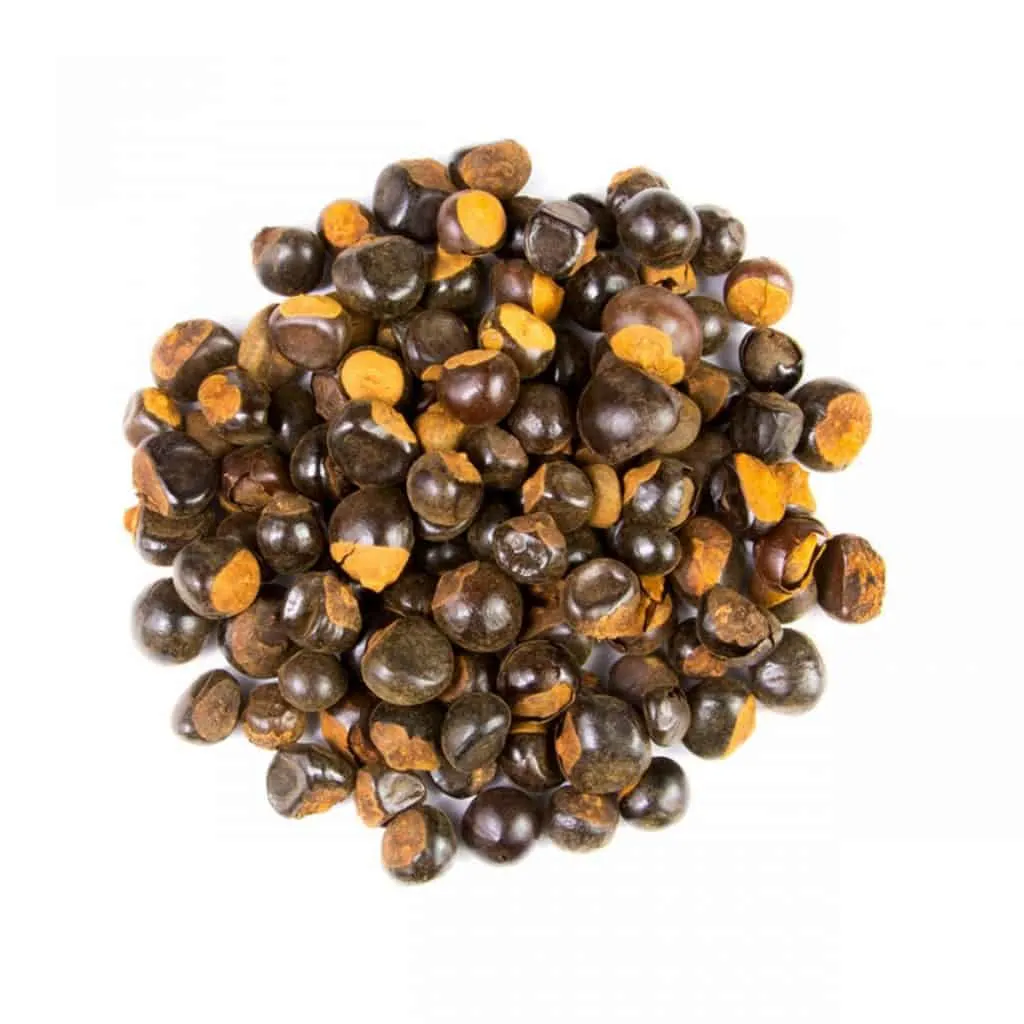
Guarana is a kind of plant that grows in South America. It was called after the Amazonian Guarani people, who utilized its seeds to make a drink. Guarana seeds are being utilized in medicine today.
Caffeine is present in guarana. Caffeine stimulates the central nervous system (CNS), as well as the heart and muscles. Guarana also includes theophylline and theobromine, both of which are caffeine-like compounds.
Now that we’ve gone over a sliver of what’s in energy drinks, let’s head on to a list of the best energy drinks to fuel you in your game.
The Best Energy Drinks for Football
Here’s a quick table showing the caffeine, calorie, and sugar amount of each brand:
| G-Fuel (16 fl. oz) | Red Bull (8.4 fl. oz) | CELSIUS (12 fl. oz) | Monster (16 fl. oz) | Bang Energy (16 fl. oz) | |
| Caffeine | 300mg | 80mg | 200mg | 160mg | 300mg |
| Calories | 0 calories | 110 calories | 10 calories | 110 calories | 0 calories |
| Sugar | 0g | 27g | 0g | 54g | 0g |
G-Fuel Energy
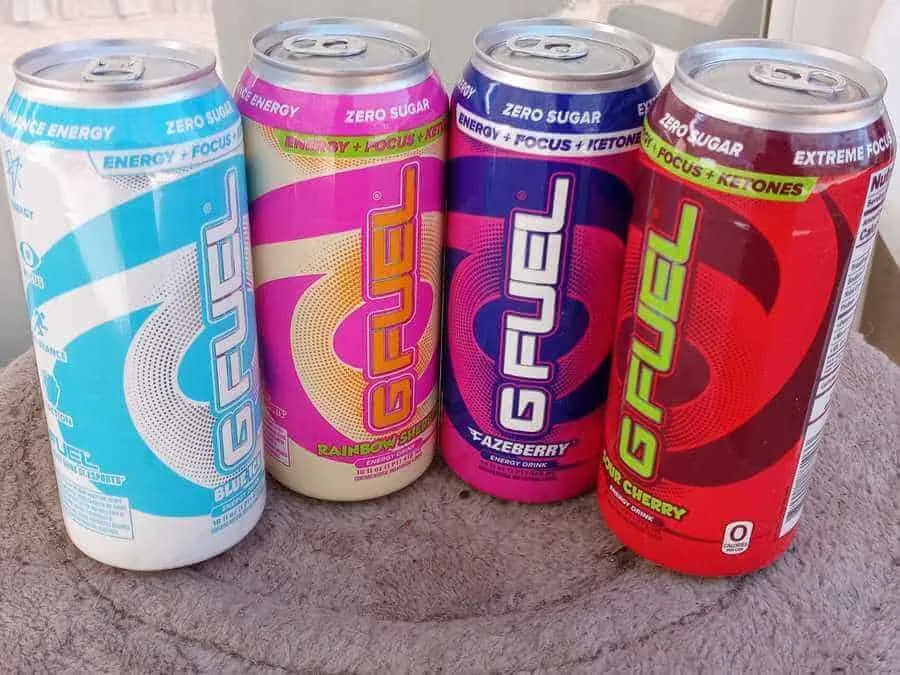
- Caffeine content: 300mg
- Calorie content: 0 calories
- Sugar content: 0g
G Fuel has 300mg of caffeine, equivalent to around two cups of coffee, and is more than enough to get you boosted through your game. With this quantity of caffeine and other brain-boosting chemicals, you’ll be ready for anything you are thrown at.
Be warned though, this is one of the stronger energy drinks out there, so if you don’t want to have so much caffeine, this may not be the best choice for you.
Red Bull Energy
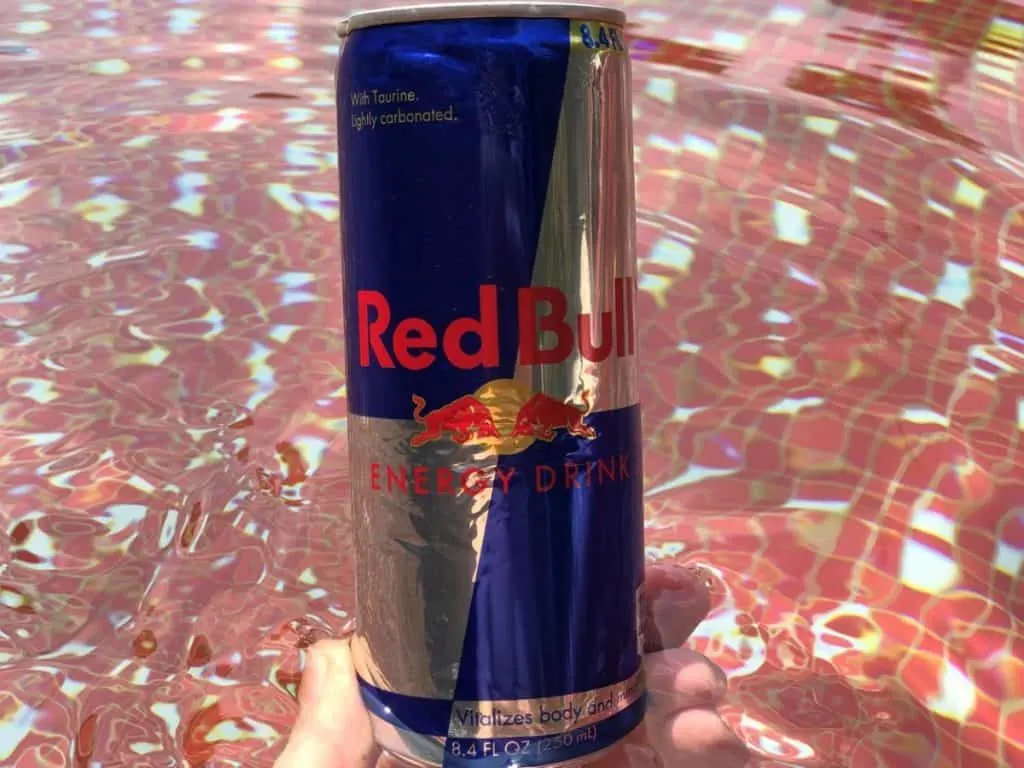
- Caffeine content: 80mg
- Calorie content: 110 calories
- Sugar content: 27g
Red Bull is the most popular energy drink on the market and has long been regarded as one of the industry’s most recognizable brands.
These beverages are meant to boost response time and make you more concentrated for a short period of time, thus making them perfect for sports like football. Moreover, they can momentarily match the task’s mental and performance requirements.
Celsius Energy Drink
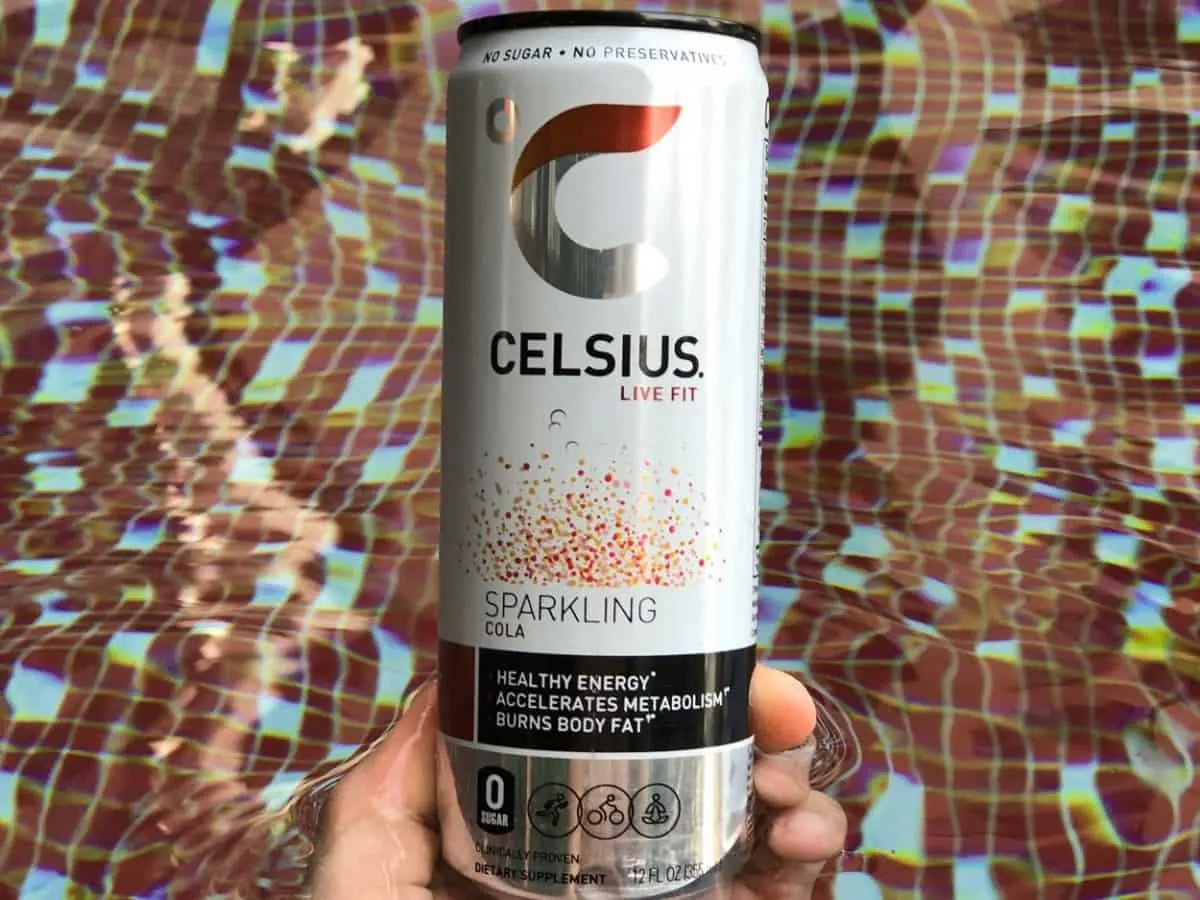
- Caffeine content: 200mg
- Calorie content: 10 calories
- Sugar content: 0g
Because it has “natural” components, a lot of vitamins, and no artificial tastes, Celsius Energy Drink is touted as a “healthy energy drink.” However, this does not inevitably imply that it is ‘healthy.’
Still, with a caffeine content of 200 mg, this will no doubt get you pumped with energy for your big game.
Monster Energy
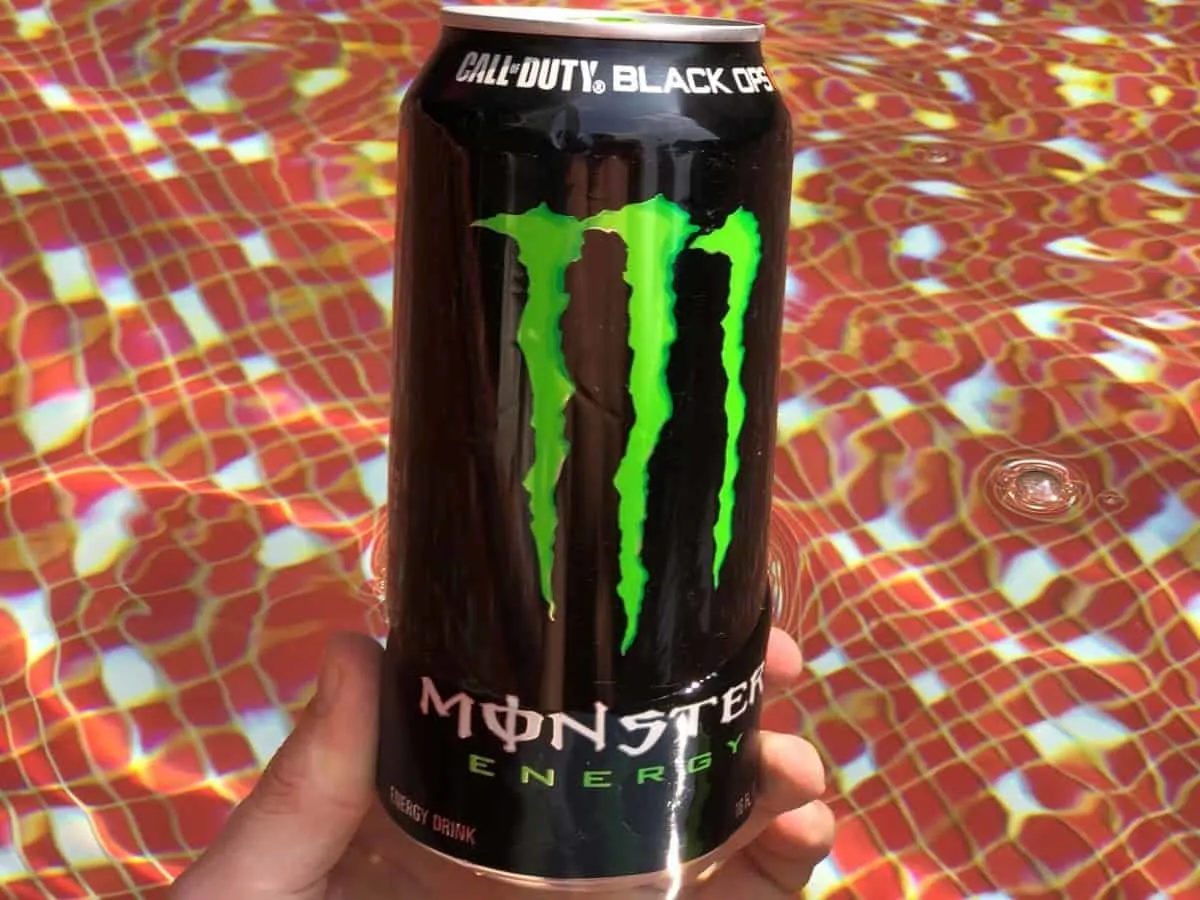
- Caffeine content: 160mg
- Calorie content: 110 calories
- Sugar content: 54g
The top energy drink brands. Monster Energy can be seen being drunk in concerts, events, and even sports. This bad boy, just like Red Bull, has garnered its reputation as being the top energy drink brand.
Monster, with its 160mg of caffeine, is enough to sustain you throughout any intense physical activities, whether it’s working out or sports or even a laser focus session of studying; Monster is your aid.
Bang Energy
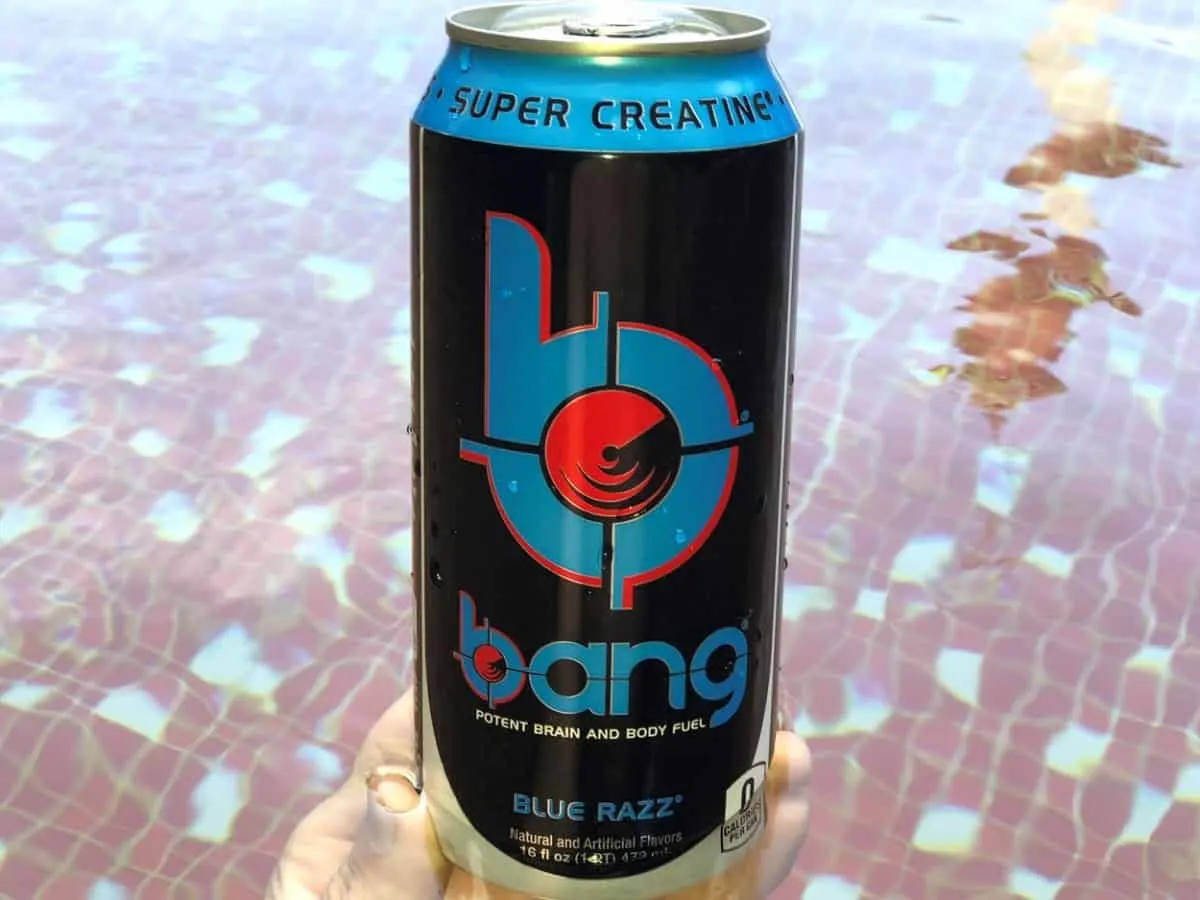
- Caffeine content: 300mg
- Calorie content: 0g
- Sugar content: 0g
Bang isn’t the most potent energy drink on the market, but it certainly delivers a punch with 300mg of caffeine. B vitamins, EAAs, electrolytes, and minerals are only a few of the extra constituents.
Are Energy Drinks Good for Football Players?
Yes, energy drinks are good for football, if used correctly. However, some things should be considered before diving straight in and grabbing a can of your favorite energy drink before a game.
According to a recent study on caffeine usage in sports, three-quarters of participants consume coffee or other caffeinated beverages before playing. It is typically a vital element of professional athletes’ routines, delivering a critical energy boost that can help them perform at their best.
Is it, nevertheless, healthy to consume coffee before playing football?
While you may wish to increase your performance in a football game, you must avoid having too much caffeine in your system. Avoid high-sugar energy drinks as well, as they might provide a temporary burst of energy followed by a slump. In the end, they will make you feel drowsy.
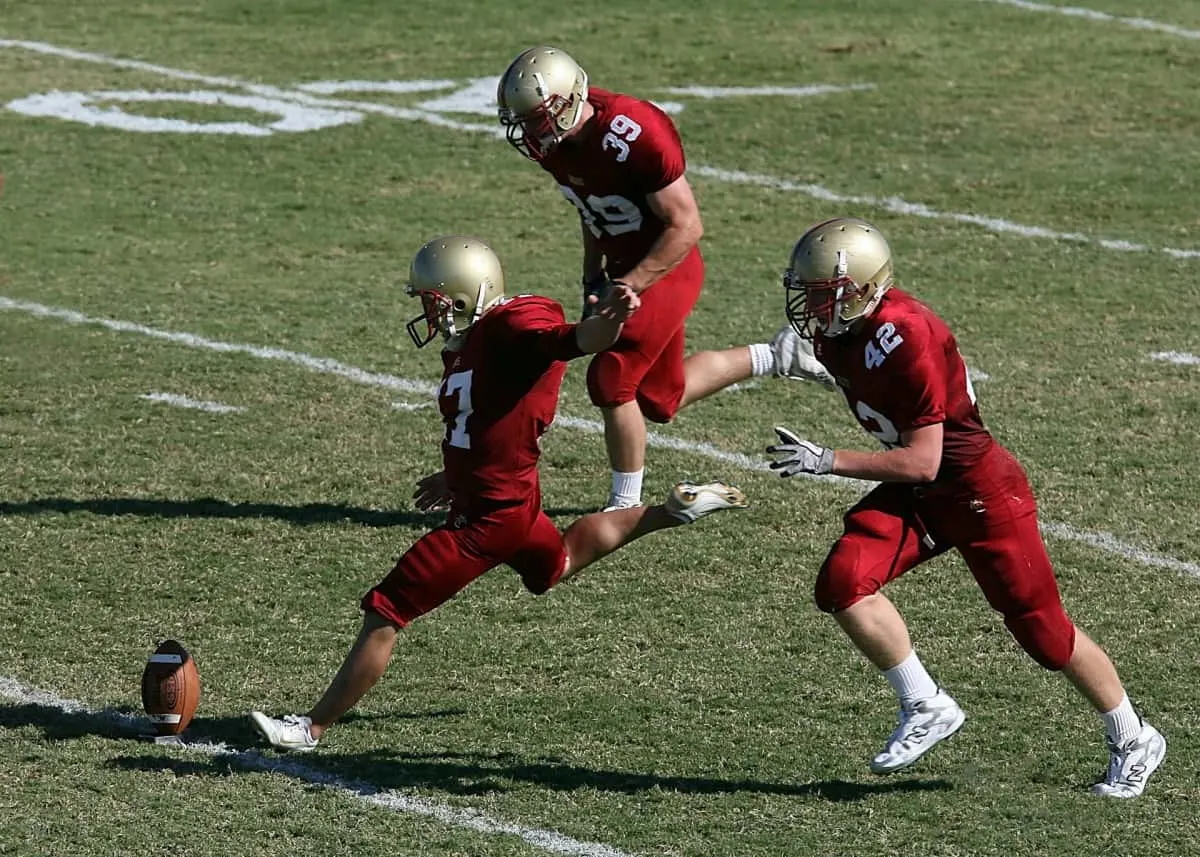
If you consume too much coffee, you will experience jitters, which include heart palpitations and anxiety. It can also produce irritation and diarrhea, both of which are undesirable on the pitch. 400mg is often enough to cause unpleasant side effects.
How long do energy drinks last?
Caffeine levels in energy drinks peak 15-45 minutes after ingestion. During this period, you will feel more alert and concentrated, and this will last until half of the caffeine has worn off 5 hours later.
Caffeine will entirely exit your system within 12 hours, and by then, you will experience caffeine side effects such as tiredness and drowsiness, although this will vary on your caffeine tolerance.
Do energy drinks boost sports performance?
Yep, they sure do!
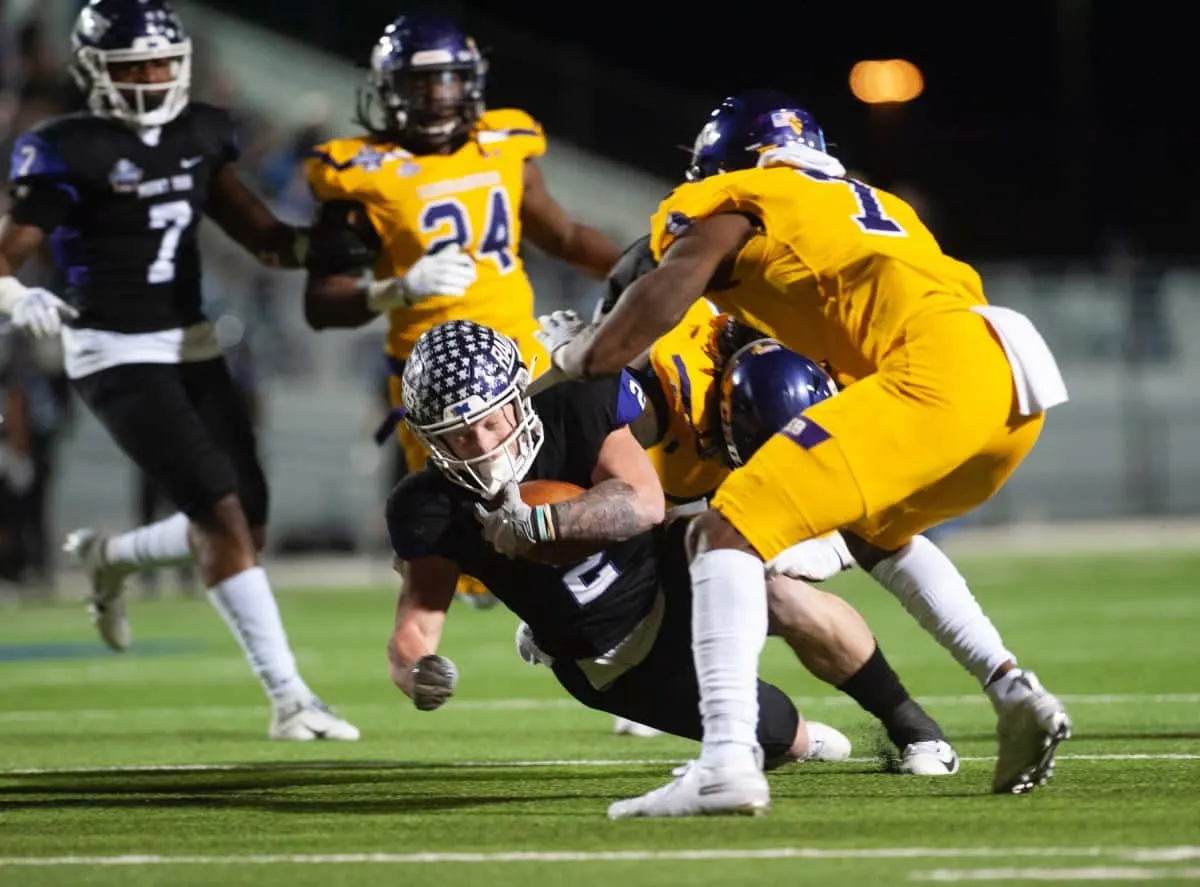
Energy drinks increase endurance performance and the quality of a resistance exercise program; nevertheless, many athletes consume them primarily for the stimulatory impact, especially to improve attention, alertness, and response speed.
A study on Red Bull has been found to boost cognitive function by improving choice reaction time, attention, and memory, all of which imply increased alertness. In addition, another study of an energy drink including caffeine as well as a variety of additional herbal and botanical ingredients found substantial gains in attention, alertness, and response speed.
What Should I Drink for a Football Game?
Your total diet is just as crucial as the snack or meal you have right before you work out. The meal before an activity is basically about fine-tuning the food and fluid reserves you’ve built up, so you’ll feel satisfied and not hungry throughout training or competitions.
Before
Water, sugar-free dilute squash, fruit juices, milk, milkshakes, yogurt drinks, soup, and sports drinks are all good options. Water may also be received via meals, such as fruits and vegetables, which contain a lot of water. Drinking a cup of tea or coffee every now and then might also help you stay hydrated.
During
During the football game, you may replenish your energy by drinking an energy drink. Energy drinks, on the other hand, aren’t meant to help you rehydrate, and you’ve already lost a lot of fluid through perspiration throughout the game.
After
Because football puts a lot of strain on the bones, you’ll want to make sure your diet has enough calcium and vitamin D, which work together to maintain healthy bone health.
If you must have an energy drink after a football game, I recommend choosing one with less caffeine because you will need to relax and rest and will not require as much energy.
Also, taurine-containing energy drinks can aid in muscle rehabilitation, so look for it on the ingredient list of your preferred energy drink.
Although it’s OK for healthy football players to have an energy drink with a modest level of caffeine before, during, or after a game, it’s not advised to have one at all of those times.
If you want to know more information about whether you should be drinking energy drinks for endurance sports like football, here’s a video you can watch:
Conclusion
Energy Drinks have always been a great lifeline to alleviate any fatigue and replenish drained energy from work, physical or mental activities, and sports.
Sports drinks, also known as electrolyte-enhanced beverages, aid in replenishing water, electrolytes, and energy lost during physical activity. These beverages frequently include a supply of energy-boosting carbs, as well as a balance of potassium, salt, magnesium, and calcium, all of which aid in dehydration, glycogen replenishment, and tiredness prevention.
